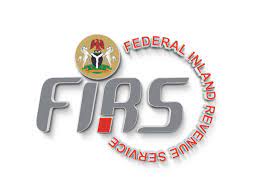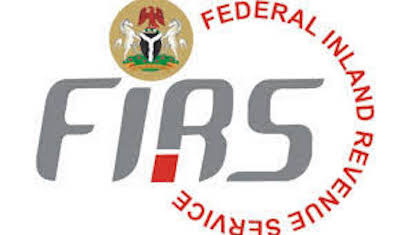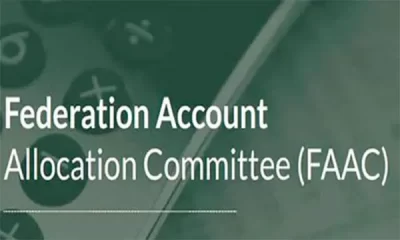COVER
FIRS Refreshments Bubget N340m not N1.4bn
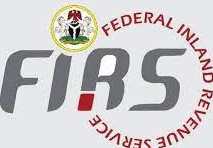
A coalition of 180 Civil Society Organisations (CSOs), have explained how the Federal Inland Revenue Service (FIRS) voted N340 million for refreshments in its 2021 budget estimates, dismissing speculations that the service had proposed N1.4 billion for the said budgetary sub-head.
Addressing Journalists at the Federal Capital Territory, FCT, Secretariat of the Nigerian Union of Journalists, NUJ, in Utako, President of the Civil Society Groups for Good Governance (CSGGG), Comrade Dominic Ogakwu said it had relied on the Freedom of Information, FOI, Law to request relevant documents from the FIRS before addressing the allegation. “As a mediator and crusader for social justice and equality, CSGGG officially wrote the FIRS on the 12th of March 2021, requesting clarifications on the above allegations. Interestingly, we got a response with detailed facts and figures, as against the unsubstantiated claims being peddled by unscrupulous elements in the public domain. “We gladly announce here that our investigations and consequent findings, have necessitated this press conference, so as to set the records straight for posterity’s sake. “CSGGG is hereby clarifying the misconceptions surrounding the alleged proposed 2021 draft budget for FIRS refreshments in 2021 and what was finally submitted to the National Assembly for approval. “At this juncture, a breakdown of the alleged infraction will suffice. Refreshment and meals amounting to Three Hundred and Forty million naira (₦340,000,000.00) is under sub code 1001. “The Sub-Code 1001, which is for Refreshment & Meals estimated at ₦340,000,000.00, for meetings with stakeholders and taxpayers, Office Functions, Technical Sessions, and Promotion Exercise Etc. “In addition, the above Sub-Code deals with general entertainment/refreshments during meetings in the field offices, Head Office/Committee engagements across the FIRS in the 37 States, inclusive of FCT; and in the Headquarters, including Board Meetings and Tax Appeal Tribunal amongst others. There are over 500 Offices and Functions in FIRS and what each of these would get would be very negligible when analysed on monthly basis. “However, it should be noted that budget provision being an estimate of income and a plan for domestic expenditure by an organisation, does not translate to actual expenditure, because the amount to be actually spent would still depend on the actual fund released and received by the Service, on the basis of performance and delivery.”
COVER
NUPRC Sets 2026 Oil Output Target at 2.5m Barrels Daily

The Nigerian Upstream Petroleum Regulatory Commission (NUPRC) said the country is on track to achieve a crude oil production target of 2.5 million barrels per day by 2026.NUPRC Chief Executive, Gbenga Komolafe, said this yesterday in Abuja during the 4th PENGASSAN and Labour Summit (PEALS 2025).
The summit was themed “Building a Resilient Oil and Gas Sector in Nigeria: Advancing HSE, ESG, Investment and Incremental Production. ”He noted that Nigeria’s current oil output had increased from 1.46 million barrels per day in Oct. 2024 to 1.8 million barrels per day, with momentum building toward the 2026 target.He credited the recent Presidential Executive Orders under the Petroleum Industry Act (PIA) 2021 for shortening contracting cycles, reducing investment risks, and encouraging upstream projects.Komolafe highlighted the commission’s efforts in deepwater exploration, reactivation of dormant fields, and adoption of enhanced recovery techniques.He also referenced a recent Deepwater Technical Stakeholders’ Workshop, which focused on unlocking more than 810,000 barrels per day in new production.He outlined a cluster development strategy aimed at reducing costs, sharing infrastructure, and strengthening investor confidence.On sustainability, Komolafe said the NUPRC’s Upstream Decarbonisation Framework targeted the elimination of routine gas flaring by 2030 and a 60 per cent reduction in methane emissions by 2031.Nigeria’s 210 trillion cubic feet of gas reserves, he added, would play a key role in the energy transition.He called for stronger collaboration between government, industry, and labour, stressing that resilience in the sector must be a deliberate effort.Managing Director of ExxonMobil, Jagie Baxi identified four critical factors for boosting Nigeria’s oil production: geology, cost, risk, and reward.He warned that in spite of Nigeria’s vast hydrocarbon resources, natural production decline, especially in deepwater operations, remained a challenge, with operators losing about 15% per cent output annually.Baxi noted that high drilling and operational costs in Nigeria deterred fresh investment.He stressed the need for risk-adjusted incentives to retain investor interest and urged improved collaboration among stakeholders to resolve disputes and revive underperforming fields. (NAN)COVER
Voter Registration:Northern CAN Mobilises Christians for Turn Out
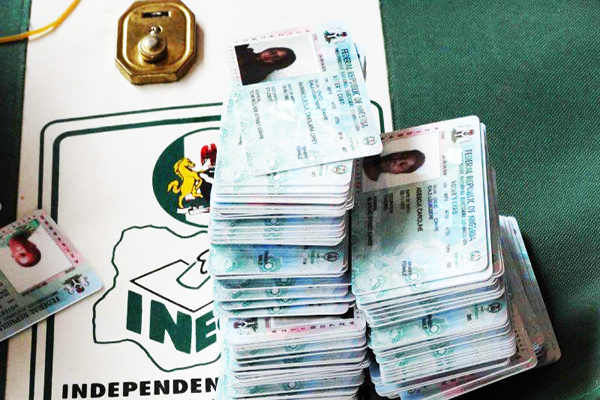
By David Torough, Abuja
The Christian Association of Nigeria (CAN) in the 19 Northern states and the Federal Capital Territory (FCT) has urged Christians to seize the ongoing Continuous Voter Registration (CVR) exercise by the Independent National Electoral Commission (INEC) as an opportunity to prepare for active participation in the 2027 general elections.
In a statement by its Chairman, Rev. Yakubu Pam, Northern CAN described voter registration as both “timely and crucial,” stressing that obtaining a Permanent Voter’s Card (PVC) remains the gateway to effective participation in the democratic process. “As responsible citizens and followers of Christ, we have a moral and civic duty to contribute meaningfully to the future of our nation. Democracy thrives when the voices of the people are heard. We must not sit on the sidelines,” Rev. Pam stated.He called on Christians of voting age, especially first-time voters, those who have relocated, or those yet to register, to turn out en masse for the exercise, adding that silence or indifference only empowers “the wrong forces to take control of the destiny of our nation.”The statement further urged churches, Christian organisations and community leaders across the North to mobilise their members for the registration, emphasising that the 2027 elections will be a defining moment for Nigeria.Meanwhile, INEC has clarified that the approved voting age under the Electoral Act remains 18, stressing that persons below that age cannot register even if they would have turned 18 by 2027.At separate engagements in Yobe and Sokoto states, Resident Electoral Commissioners (RECs) assured citizens that the CVR will be conducted smoothly, with security agencies fully mobilised to provide safety in identified flashpoints.INEC also restated that both online and physical registration will run for one year, targeting new voters, those with invalid PVCs, and citizens seeking transfers or corrections of details, while warning against multiple registrations.COVER
Nigeria’s External Reserves Hit $41bn, Highest in 44 Months

By David Torough, Abuja
Nigeria’s external reserves have surged to a four-year high of over $41 billion, a development the Presidency has hailed as a major economic milestone while taking a swipe at opposition leaders; Atiku Abubakar, Peter Obi and Nasir El-Rufai.According to the Central Bank of Nigeria (CBN), the gross reserves stood at $41,001,830,139.
96 as of August 19, 2025, with net reserves at $40. 3 billion, a level last seen in 2021, 44 months ago. Presidential spokesman Bayo Onanuga in a post on his official X handle yesterday described the achievement as evidence of “Prudent economic management” under President Bola Tinubu, adding that the increase was attained despite falling global oil prices.“The latest milestone was reached without massive inflows from oil sales. It’s all about the prudent management of the economy by President Bola Tinubu,” Onanuga wrote on X, noting that opposition leaders were unlikely to acknowledge the progress.He accused Atiku, Obi, El-Rufai and Babachir Lawal of being “blinded” by what he called a “doomed campaign to discredit Tinubu’s government.”The rise in reserves has been attributed to increased foreign exchange inflows, modest crude oil output gains, and recent CBN reforms, including the unification of exchange rate windows that boosted investor confidence.According to a report, the reserves’ strength now provides cover for more than 10 months of import needs, bolstering Nigeria’s foreign liquidity position.
